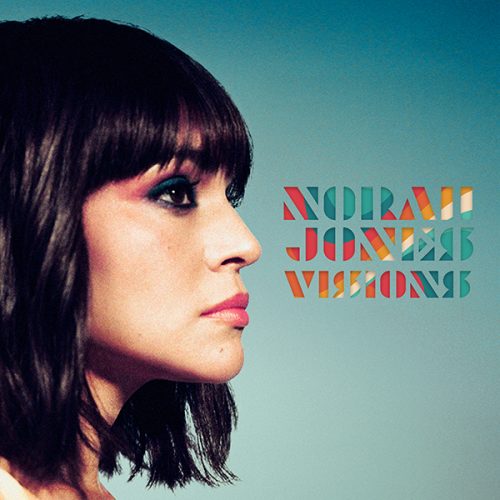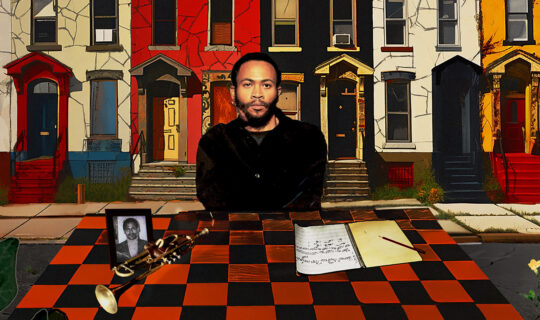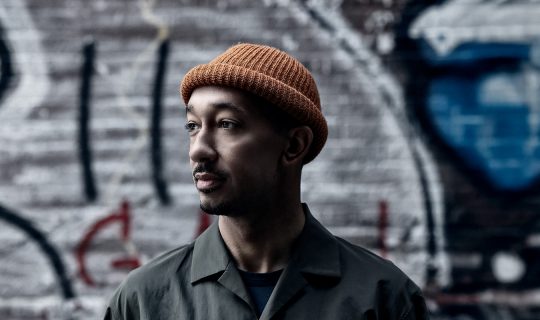March 8, 2024
DON WAS ON NORAH JONES VISIONS:
A while back I set out to learn more about what differentiates a truly great artist from the rest of the pack and charted the narrative development of Bruce Springsteen’s songs during his career. Over decades, he had traveled on a Hero’s Journey straight from the pages of Joseph Campbell’s books and ultimately returned home with the knowledge that having someone to talk to and a little of that human touch is the greatest treasure that one can pursue. By eloquently chronicling his experiences, he had left a trail of musical breadcrumbs that his listeners could follow to help make sense of their own lives. It’s a noble deed and is one reason for his enduring relevance.
I feel the same way about Norah Jones. On her 2020 album, Pick Me Up Off the Floor, she sang about how she wept, about loss and being lost, about going up in flames and being heartbroken. I wanted to reach into the speakers and give her a big hug because it was clear that she was experiencing some of the midlife stuff that Carl Jung had written extensively about. We all go through it and we’re all woefully unprepared to deal with it.
When I first heard the songs on Norah’s new album, Visions, it was evident that she had weathered the storm and emerged with an enlightened perspective. She’s singing about being awake, wanting to dance, finally feeling free, being on her way to making it right and acceptance of what life brings. She’s seeing light at the end of a tunnel that had engulfed her four years previously and is offering guidance, comfort, and joy to others who may find themselves standing at similar crossroads.
It’s both difficult and uncomfortable to dig deep and share your inner emotional life with the world – even harder to eloquently shroud those feelings in layers of poetry and innovative musical texture. It’s a staggeringly generous use of popular music. Norah Jones’ Visions attains that artistic ideal with nobility and grace.
—Don Was, President, Blue Note Records
NORAH JONES IN CONVERSATION WITH DON WAS:
DW: One of the things I think is so special about Visions is that in the past you’ve made albums that individually represented different aspects of your musical personality—a jazzy album, a country-ish album, experimental music—but I feel that on this record you’ve seamlessly woven all these different sensibilities into an organic fabric that bears your unique musical signature. Is that something you were aware of while you’re making the record?
NJ: No, I think it’s just that I felt so comfortable with Leon Michels who produced the record. Honestly, we were just throwing a lot of stuff at the wall and seeing what stuck, and most of it stuck because it was just really fun to make music together. He’s not as country as I am so even the little country bits that popped out were a surprise to us both.
DW: The production style of the record is unlike anything I’ve ever heard before. There are familiar elements, but I’ve never heard it put together like this and I think the fact that most of the instruments on the album were played by either you or Leon is part of what makes it sound so unique. Can you tell me about how the two you worked together to make these tracks?
NJ: The first song we did together was “Can You Believe,” the single that came out last year which is not on the album, but we did most of the songs in the same way where I was at the piano or on guitar and he was playing drums and we were just jamming on stuff. Some songs I had already started and we finished, and some of them we came up with in the room from scratch, but they all were recorded like that with the exception of three songs that were recorded in a studio with an incredible band [with Brian Blade on drums and Jesse Murphy on bass]. But I like the rawness between me and Leon, the way it sounds kind of garage-y but also kind of soulful, because that’s where he’s coming from, but also not overly perfected. I feel like we could never beat the takes of us in the room so that was the base of it, and then he played some bass I played some more guitar and we just built the tracks from there.
DW: Leon has an incredible background, he’s a saxophone player and a producer. He was part of Sharon Jones & The Dap-Kings, played with Lee Fields, Menahan Street Band, has his own band El Michels Affair, and was very much a part of that Soul revival movement. How did you hook up with him?
NJ: He played horns on a couple of my albums over the past several years, then right before the pandemic he asked me to sing on something but it didn’t happen. Then I was doing these singles so I asked if he wanted to get together and just play, and this was in early 2021, so when we got in the room finally and did the thing where he plays drums and I play piano we both were just high with the fact that we were playing with another person because it had been that long because of Covid. That’s the day we came up with “Can You Believe” and we wrote pretty much all of it. Then I kind of switched gears and I asked him to make my Christmas album because it was just so fun working together. So, we made that whole album and we got to know each other really well.
DW: The last full studio album of new material you made was Pick Me Up Off The Floor, and when I heard it for the first time I had this really strong reaction that I wanted to reach into the speakers and give you a big hug because I recognized that you were going through something that Carl Jung politely referred to as midlife transition. Then I listened to the lyrics on this new album and I sensed that you were seeing the light at the end of that tunnel. It’s courageous the way you reveal your deepest inner emotional life in these songs it’s one of the most generous things because in creating this chronicle you’ve left an artistic trail through the forest that other people who are going through the same things can listen to these songs of yours and find a way to get through it and I can’t think of a more meaningful undertaking for an artist to engage in. Again, were you aware of this in making the album?
NJ: No, but I love your take on it! I think it’s so true, but I was completely unaware of it. I thought I was better at hiding my true deep emotions! I think I just feel comfortable not editing myself because nothing’s that literal, but maybe emotions can be literal because they can also be about anything. I’m so glad that you took that from it. I think for me anytime I’m making music or writing I don’t really know what it’s about until after it’s all over. So when I look back at it, with your take on it in mind, yeah totally.
DW: Well, I think the measure of a great artist is someone who can reach inside, identify their deepest inner emotional life, and put it out there in poetic form for other people to pick up on and to read their own things into. I certainly went through something very similar and I wish I’d have had your album 30 years ago to help me get through it! Alright let’s talk about some music, can you tell me about “Running”?
NJ: Well, the reason I called the album Visions is because a lot of the ideas came in the middle of the night or in that moment right before sleep, and this was one of them where you’re half asleep and kind of jolted awake. I had a melody and some lyrics running through my head and I just voice memoed them. Then when Leon and I did the song it was just me on piano and him on drums. It took some time to find the song actually, but in the end we had it all along, it was one of those.
DW: Tell me about “Staring at the Wall.”
NJ: This is one of my favorites. It was kind of a left turn from everything else on the album. I think it’s the first time I played guitar with Leon we were just trying to come up with something different. I got on guitar and he got on drums and it just took off. It’s just so fun to play music sometimes, you know, and I feel like on this album there were a lot of those times. He had a really cool guitar sound going for me so it just felt good. And then the lyrics to this one came very fast so I must have been feeling something.
DW: Let’s talk about “I Just Wanna Dance.”
NJ: I had this idea, again it was just one of those random things that just popped into my mind, and I’d been thinking about it for a long time. This song had another drummer, Homer Steinweiss, who was also part of the Dap-Kings and he played with Amy Winehouse, he and Leon are tight. So, we were just playing around with this song and I was on Wurlitzer. The song pretty much just repeats the same thing over and over ‘I don’t want to talk about it, I just wanna dance.” Afterwards Leon was like ‘We’ll change some of the lyrics around,’ and I was like ‘No, I just want to dance! That’s it!’ That’s the whole sentiment of the song. The part that’s funny about it is that that there is no verse, there is nothing else, so hopefully the groove and the vocals carry it because that was the plan!
DW: It definitely does and it’s a noble sentiment.
NJ: Exactly, screw it all.







